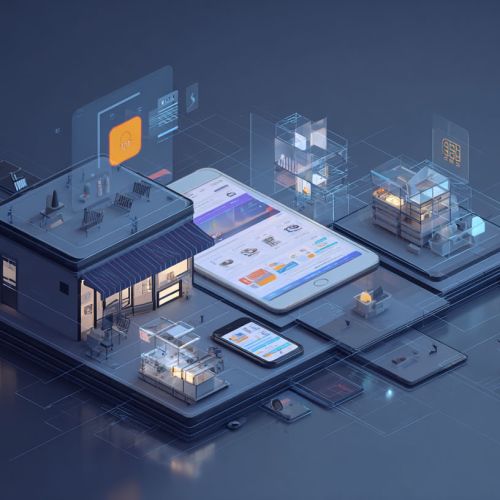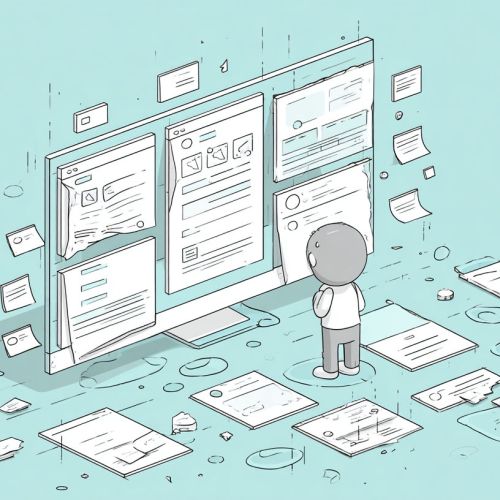The digital experience is rapidly evolving. The Opera Neon browser positions itself at the forefront of this transformation by embracing the Agentic Web. Unlike traditional browsers that merely display webpages, Opera Neon reimagines browsing as an interactive, intelligent experience powered by AI agents and automation. This new paradigm is changing how users engage with information, manage tasks, and leverage digital productivity tools.
The Agentic Web reflects a radical shift from passive browsing to active, agent-driven interactions. It empowers users with a new level of autonomy online by enabling browser task delegation and personalized browsing workflows. In this article, we will dissect why the conventional browser model faces obsolescence, how Opera Neon’s innovative design and embedded AI redefine digital productivity, and what that means for marketing leaders and technology decision-makers looking to future-proof their strategies.
Imagine your browser not just displaying content but anticipating your needs—booking appointments, aggregating data, and automating routine tasks—acting as a proactive digital assistant. This vision drives the conversation about the Agentic Web and why the Opera Neon browser is a critical player in this emerging landscape.
The Dawn of the Agentic Web – More Than Just Pages
The Agentic Web is more than a conceptual vision; it is the next evolution of online interaction. At its core, the Agentic Web integrates always-on agents—AI-driven automations that can understand, learn, and act on a user’s behalf—directly into the browsing experience. It transcends traditional browsing by enabling browser task delegation and adaptive workflows customized to individual needs. These agents function almost like personal digital assistants embedded inside the browser, moving beyond simple navigation to intelligent support.
Why Now? Forces Fueling the Agentic Web
Several forces fuel the rise of the Agentic Web. Advances in artificial intelligence, particularly large language models like OpenAI’s GPT-4, have made natural language understanding and contextual reasoning markedly more sophisticated. Users now expect multitasking capabilities and personalized experiences, whether they are conducting research, managing projects, or shopping online. This explains growing interest in digital productivity tools that automate complex workflows and free up human attention.
Key Drivers of Agentic Browsing
- Rapid advancement of AI and LLMs.
- Rising demand for personal productivity and multitasking.
- Growth in browser-based digital workspaces.
- Desire for seamless automation without switching tools.
Agentic Automation in Marketing: A Glimpse Into the Future
For example, in the marketing landscape, agentic web automation allows campaign managers to schedule social listening, auto-generate reports, or curate competitor insights directly from their browser without juggling multiple apps. Gartner’s recent reports emphasize that agent-driven user interfaces will become mainstream by 2025, driving deeper integration of AI in software ecosystems. Similarly, Forrester highlights how agentic technologies enable businesses to reimagine customer engagement by balancing automation with user autonomy online.
The Agentic Web marks a shift away from the user as a passive consumer of content toward an empowered director of autonomous agents that accelerate productivity and decision-making. Understanding this shift is essential for marketing leaders looking to optimize team efficiency and innovate with digital tools that extend beyond conventional platforms.
Browser Battles Redux – The Evolution to Opera Neon
Understanding the emergence of the Opera Neon browser requires a glance at the history of browser innovation and how competitive dynamics have shifted over the decades. The “browser wars” started with Netscape challenging the dominance of Internet Explorer during the 1990s. Innovation then focused primarily on speed, web standards compliance, and basic security features. The launch of Google Chrome in 2008 escalated competition with a focus on minimalism, speed, and sandboxing for security.
From Speed to Intelligence: A New Browser Era
More recently, browsers such as Microsoft Edge and Brave have pushed privacy and data protection to the forefront, answering user demands for safer browsing environments. While these incremental innovations improved performance and security, the core browsing experience—loading and rendering pages—remained fundamentally the same.
What Makes Opera Neon Stand Out
- Emphasis on visual, spatial workflows.
- Built-in agent automation for everyday tasks.
- Seamless integration with third-party APIs.
- Native support for multitasking and user customization.
Why Opera Neon Represents a Paradigm Shift
Today’s evolving digital landscape demands more than just incremental gains. The next browser war revolves around intelligence, agency, and integrated user experience. The Opera Neon browser enters this new phase boldly by reimagining browsing as a highly interactive, AI-augmented experience that embodies agentic web automation and personalized browsing workflows.
Opera has a strong legacy as an innovator. It was an early adopter of speed dial, built-in VPN, and integrated ad blocking. Neon extends this tradition by offering a visually striking interface centered on fluid navigation with bubble tabs, split screens, and spatial tab management that reflect the multitasking reality of modern digital professionals.
Opera’s significant investments in AI and open architectures allow Neon to interface seamlessly with third-party agent tools and APIs. This positions Opera Neon as more than a browser—it is emerging as a platform for intelligent, user-centered web engagement. Market share statistics from StatCounter reveal how Chrome dominates, but also indicate growing thirst for specialty browsers catering to specific user needs like privacy, productivity, and intelligent automation. Opera Neon addresses this growing niche.
Industry leaders acknowledge this imperative change. A recent interview with an Opera product executive emphasized that while speed and privacy remain critical, the future of browsing lies in redesigning user workflows around intelligence and agency rather than mere content consumption.
Inside Opera Neon – Core Features Redefining Browsing
The Opera Neon browser stands apart through several core innovations that enable a truly agentic web experience. Its visual and spatial UI design is the first noticeable difference. Instead of traditional linear tab bars, Opera Neon uses “bubble tabs” that float freely on the screen, allowing for immediate visual prioritization of tasks and applications. Users can position tabs side by side in split screens, facilitating multi-window workflows without clutter or constant tab switching.
Key Agentic Features in Opera Neon
- Bubble Tabs: Floating tab management for intuitive multitasking.
- Split Screens: Run multiple tasks side-by-side without switching tab.
- AI-Driven Agents: Proactive suggestions and task execution.
- Built-in Privacy Tools: VPN, ad blocker, and agent-level security settings.
This fluid navigation aligns perfectly with personalized browsing workflows where users juggle multiple streams of information and automation agents simultaneously. For example, a marketing director can research competitive content in one bubble, generate related SEO data in another, and simultaneously monitor social sentiment—all within a unified visual workspace.
Embedded AI is a standout feature in Opera Neon. Built-in agent frameworks harness the power of natural language models and automation scripts that proactively suggest tasks, curate personalized content, or execute multi-step browser task delegation on behalf of the user. This might include auto-filling forms, aggregating data from multiple sources for analysis, or recommending next steps during research.
Creating Your Own Smart Browser Workspace
This fluid navigation aligns perfectly with personalized browsing workflows where users juggle multiple streams of information and automation agents simultaneously.
Example Workflow for a Marketing Director
- Bubble tab 1: Competitive content research.
- Bubble tab 2: Keyword and SEO data generation.
- Bubble tab 3: Social listening dashboard with real-time alerts.
- Agent sidebar: Report generation from insights pulled across tabs.
Privacy and security remain foundational. Opera Neon includes a built-in VPN and ad-blocker, but it also embraces agent protection to safeguard delegated actions from interception or misuse. Users retain full control over what data agents can access, ensuring user autonomy online is not compromised by automation.
Integration with third-party digital productivity tools further amplifies Opera Neon’s appeal. It offers APIs for agentic web automation tools such as scheduling assistants, content curators, and research consolidators to embed seamlessly into the browsing environment. Thus, users can create workflows that cross app boundaries without interrupting their flow.
Early adopters report high satisfaction with Neon’s unique UI and integrated AI capabilities. For example, a digital marketing team used Opera Neon to streamline competitive market research by simultaneously aggregating ad campaign data, analyzing competitor keywords, and generating quick trend reports—tasks that previously took hours spread across multiple platforms.
Agentic Web in Action – Use Cases and Business Value
To appreciate the transformative potential of the Opera Neon browser, it helps to examine real-world applications where agentic capabilities redefine workflows and unlock measurable business value.
Use Cases for Different Users
For Marketers:
In marketing, the browser’s AI-driven agents automate many routine yet time-intensive tasks. For example, campaign managers can deploy agents to continuously monitor social sentiment, curate competitive intelligence, and auto-generate campaign performance reports—all without leaving the browser. This accelerates insight cycles, enabling faster decision-making and more agile campaign adjustments. Personalized browsing workflows allow marketers to switch between data sets fluidly while automation runs in the background.
- Agent-led social sentiment analysis.
- On-the-fly competitor report generation.
- Campaign data collection and summarization.
For Consumers:
For consumers, AI-assisted shopping offers compelling benefits within Opera Neon. Browsers can compare prices, check for coupons, and anticipate desired products through predictive personalization, effectively reducing friction and increasing user satisfaction. Similarly, complex tasks like trip planning can autoschedule flights, accommodation, and itinerary suggestions using browser task delegation, saving users hours of manual research.
- AI-assisted shopping experiences.
- Predictive content and product recommendations.
- Automated travel planning via delegated research.
For Teams:
Collaboration is also enhanced. Opera Neon supports shared browsing sessions where multiple users and their respective agents can co-navigate, annotate, or delegate tasks in real-time. This is helping distributed teams work synchronously and securely through digital ecosystems, essential for hybrid work models.
- Shared browsing with real-time annotations.
- Collaborative workflows with task-assigned agents.
- Cross-user intelligence sharing within the browser.
Tangible Business Benefits
Productivity Gains:
- 20–30% reduction in time spent on manual research.
- Improved decision-making speed through real-time insights.
Competitive Differentiation:
- Faster go-to-market timelines.
- Enhanced agility through browser-native automations.
Security and privacy controls tailored for business users further solidify Opera Neon’s position. Role-based agent permissions, encrypted data flows, and transparent audit logs enable enterprise deployments with minimal risk. This enhances trust and adherence to corporate compliance frameworks.
Competitive differentiation comes from how organizations that adopt agentic browsing early can supercharge digital transformation initiatives. By weaving automation and AI into the fabric of daily browsing, they reduce reliance on monolithic platforms and empower employees to be more responsive and proactive.
Case studies of companies piloting agentic web solutions confirm productivity improvements up to 30%, with time saved on research and reporting tasks translating directly to faster go-to-market cycles. CMOs and technology leaders recognize these gains as critical for maintaining competitive edge.
Challenges and The Road Ahead
Despite its promise, agentic browsing faces significant challenges before it becomes mainstream. Security and privacy are foremost concerns. Delegating complex tasks to AI agents inside browsers requires transparent control and robust protection against data leakage, misuse, or manipulation. Users must understand what agents are authorized to do and have the ability to revoke permissions at any time.
Key Obstacles to Mainstream Adoption
1. Security and Privacy
- Need for granular agent permissions.
- Protection from unauthorized data access.
2. Interoperability & Standards
- Lack of universal protocols for agent communication.
3. User Trust and Autonomy
- Transparent agent behavior and revoke capabilities.
The Future of Browsing: Toward Agentic Super-Apps
Browsers may soon serve as operating platforms themselves, integrating with cloud services, AI copilots, and decentralized identity systems. The agentic web could evolve into a super-app ecosystem, where:
- Personalization, privacy, and intelligence coexist by design.
- Each agent operates as a micro-service.
- Browsers become control centers for digital life.
Looking forward, the role of browsers is set to evolve. They may transition from simple gateways to immersive platforms, closely integrated with operating systems and cloud ecosystems. The rise of AI co-pilots that reside in browsers suggests a super-app model where multiple digital services converge in a customized agentic envelope.
Decentralized agent networks powered by blockchain or distributed AI could further reshape data ownership and privacy paradigms, creating new business opportunities as well as regulatory challenges. Compliance with global standards such as GDPR and CCPA will require dynamic enforcement mechanisms tailored to agentic designs.
Security experts advocate for continuous monitoring and adaptive defenses as browsers increase in complexity and agency. Meanwhile, data ethicists caution about biases and transparency in automated decision-making, emphasizing responsible innovation.
A timeline of browser innovation milestones shows that the leap to agentic browsing is the next logical step in a trajectory marked by speed, privacy, and now intelligence and automation. The future browser wars will be fought not on raw speed or even privacy alone, but on the seamless integration of user autonomy online with smart, trustworthy digital agents.
Conclusion
The Agentic Web is redefining not only how we browse but how we interact with the entire digital ecosystem. The Opera Neon browser exemplifies this shift by blending AI-powered automation, innovative UI design, and strong privacy controls to deliver an agentic browsing experience tailored for today’s demanding digital professionals.
Reflection: Your Agentic Readiness Checklist
Ask yourself:
- ✅ What daily tasks could my browser automate today?
- ✅ How could personalized workflows improve my team’s efficiency?
- ✅ Am I ready to integrate agentic tools into our digital strategy?
For marketing leaders, CMOs, and technology decision-makers, understanding and adopting these emerging agent-driven workflows can unlock significant productivity gains, enhance customer engagement, and offer distinct competitive advantages in rapidly evolving markets.
As Opera Neon points toward the future of browsing, the question remains: how will your workflows change if your browser becomes your smartest productivity partner? Embracing agentic web technologies today can prepare organizations to navigate tomorrow’s complex digital landscape with agility and confidence.
We invite you to reflect on your current browsing and productivity habits. What tasks would you trust an intelligent browser agent to handle for you? How might those capabilities transform your team’s effectiveness and innovation potential? Share your experiences and perspectives as we collectively explore the dawn of the agentic era.






